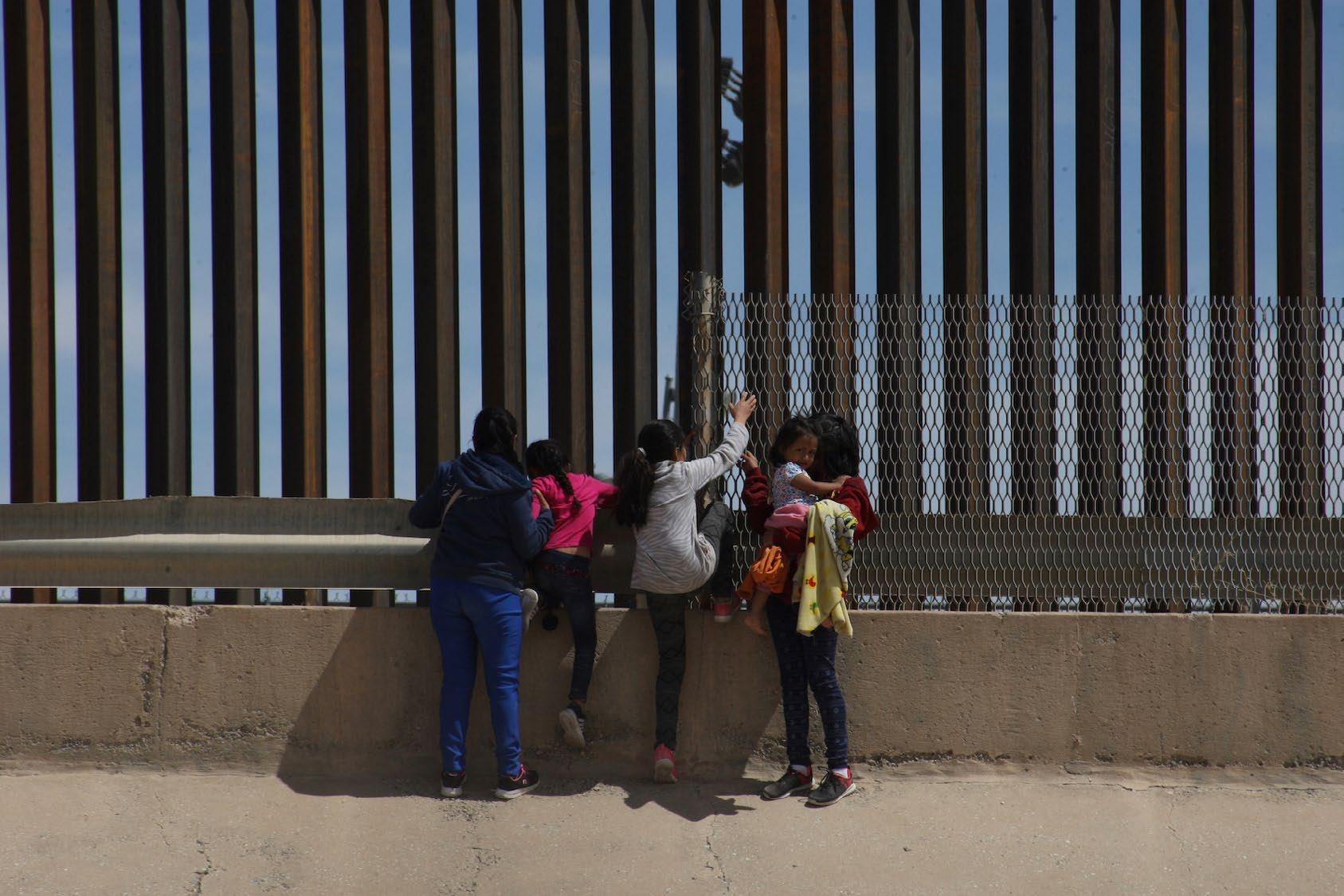
7 minute read
Diplomatic Agenda: The ambassador's farewell to Angela Merkel
The legacy of Angela Merkel
Children in Germany have been known to ask their parents: is it possible for a man to become chancellor in Germany? Not an unreasonable question if you were born after the turn of the millennium .
Advertisement
For 16 years, from 2005 to 2021, Angela Merkel has been at the helm of government in Germany . She has led the most populous and prosperous country of the EU and became, over the years, the undisputed prima inter pares in the European Union and an outstanding international leader within the G7, the G20 and the world . After four unusually demanding terms in office, she has decided not to run again in a rare case of a leader who leaves office voluntarily, at the time of her own making and in her manner of choice . Many people are sad to see her go; she represented reliability and constancy in a turbulent time, a voice of reason and science . She was “the adult in the room” and, certainly, a chancellor for the history books .
She was Germany’s first female chancellor . In a country and a party that had defined women longer than others by the three Cs (children, cooking and church,) the young scientist from Eastern Germany rose steadily through the political ranks in the 1990s . She made the hard choices when her party was being torn apart by a sponsorship scandal . She took over its reins when it was down and out . (These are, by the way, often the moments when women have been allowed to take positions of power) .
And, to the surprise and dismay of many of her male competitors who had seen Angela Merkel as a transitional solution, she stayed . She stayed, rebuilt and led her party to four consecutive victories . She answered the question of whether women can run Germany once and for all .
Merkel steered the country with a steady hand through an era of upsets and crises . The financial meltdown in 2008, the Euro-crisis, the hardening relationship with Russia, a complex transatlantic period under then-U .S . president Donald Trump, the new assertiveness of China, the obvious reality of climate change and its consequences, the pandemic and the migration crisis .
FIRST NAME: Sabine LAST NAME: Sparwasser CITIZENSHIP: German
NAMED AS AMBASSADOR::
Aug. 31, 2017 PREVIOUS JOBS: Ottawa (2003-2006) and Toronto (2009-2013)
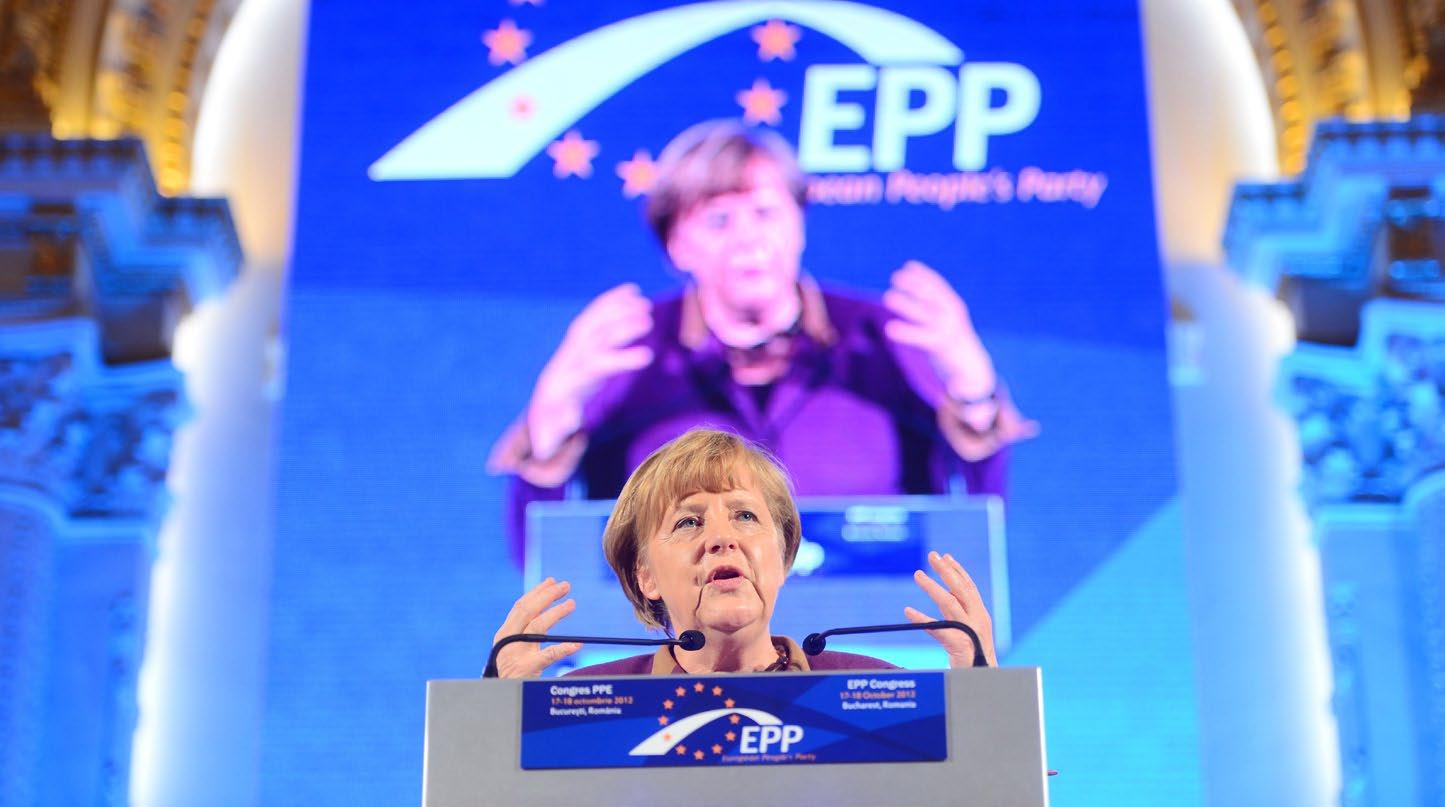
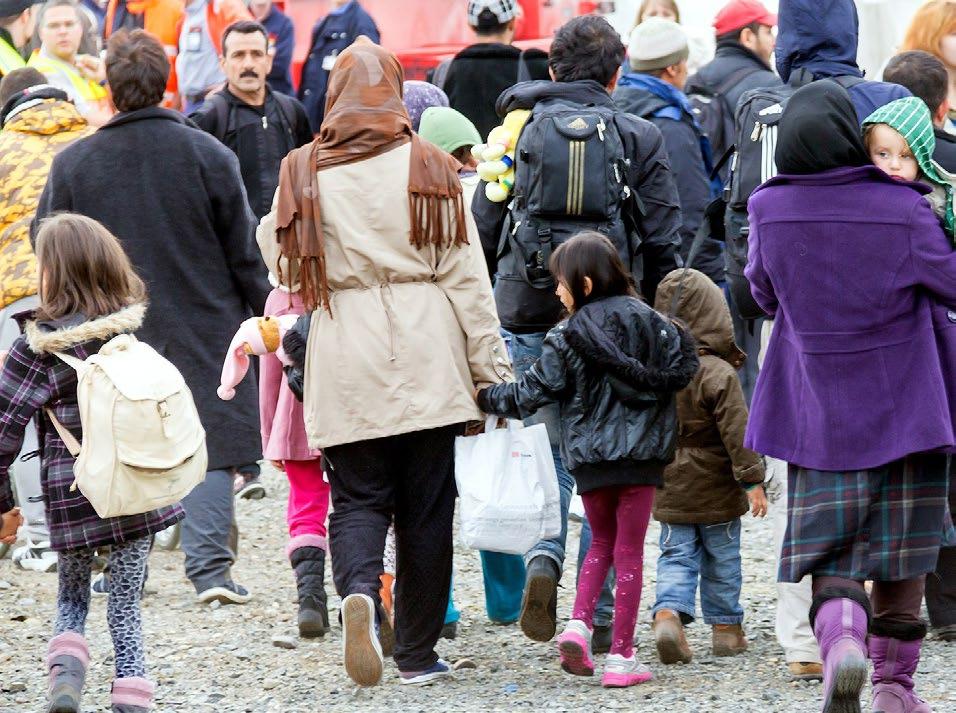
Welcoming more than a million Syrian refugees to Germany, some of whom are shown here, was Angela Merkel's greatest moment, according to Ambassador Sparwasser.
Then-chancellor Merkel met U.S. President Joe Biden at the White House in July.
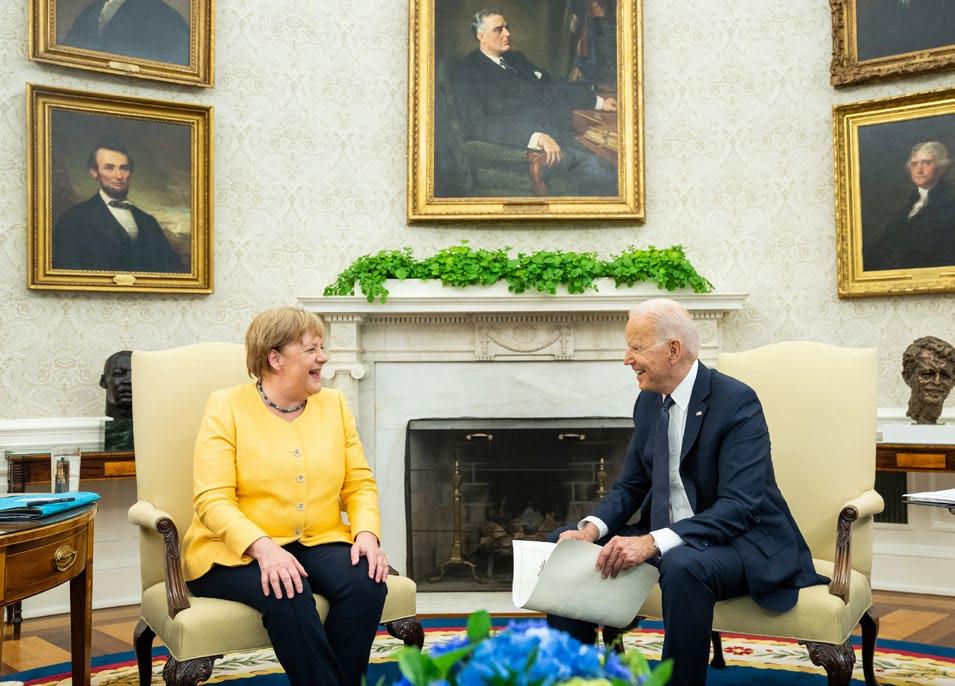
The refugee crisis in 2015 when she said “Wir schaffen das“ (“We can do this”) and welcomed more than a million people from Syria and other countries into Germany was certainly one of the defining moments of Merkel‘s career . She demonstrated her deeply felt Christian values and — having grown up behind a wall — her strong commitment to freedom . It was her greatest moment .
But it cost her politically; the xenophobic political right in Germany grew after 2015 . Some European partners were unhappy . After the initial welcome of so many newcomers, ways had to be found to control migration flows . Negotiations with Turkey resulted in many difficult decisions .
At a time when many countries have turned towards populists and macho leaders, Angela Merkel has stood out internationally for her leadership qualities . Hers is a fact- and science-based approach; she does not grandstand, uses no inflammatory rhetoric, never vilifies . Rather, she dissects problems into their component parts — reflecting her education as a scientist — and attempts to solve them one by one . Her grasp of detail is said to be phenomenal . Her stamina is legendary; she has spent many nights in long negotiations — in the EU, with Russia, at the G7 .
Merkel once won a German election with the slogan “Sie kennen mich” (“You know me”) . And it’s true: She has become the face of Germany in those 16 years . In the first year of the pandemic, she — untypically for her — talked often to the nation, admonishing, advising and explaining why the protection of life justified restricting individual freedoms . The nickname “Mutti” (Mother) stuck to her .
But at the same time, she has been an intensely private person . The private Merkel we do not know; neither she nor her husband ever allowed the media into their home nor did they publicly talk about personal matters . Throughout her years as chancellor, she lived and will continue to live in a normal private apartment in Berlin-Mitte .
She will have more time to spend weekends at her cottage in MecklenburgVorpommern . She has not said what she would like to do in the future . Many would love to see her run for high international office, write her memoirs, become a fixture on the public appearance circuit . We shall see .
In the meantime, she has managed a democratic transition as it ought to be done . She has introduced her successor, Olaf Scholz, to G20 leaders and has consulted with him over the last few months to help ease his way into this uniquely challenging position . As her vice-chancellor and finance minister for many years, Scholz is uniquely prepared to take up his new responsibilities . The disciplined coalition negotiations of the last weeks of 2021, resulting in clear commitments and projects outlined in the coalition agreement, are reassuring European and international friends that Germany will continue to have strong and reliable leadership .
It is rumoured in Berlin that Angela Merkel has chosen a famous German chanson to be played at the Grand Tattoo for her departure . It is the song of a woman demanding of life: Für mich sollt’s rote Rosen regnen (It should rain red roses for me .) A strong choice, Chancellor . I so hope it will rain roses for you . D
iStock: Photo Beto
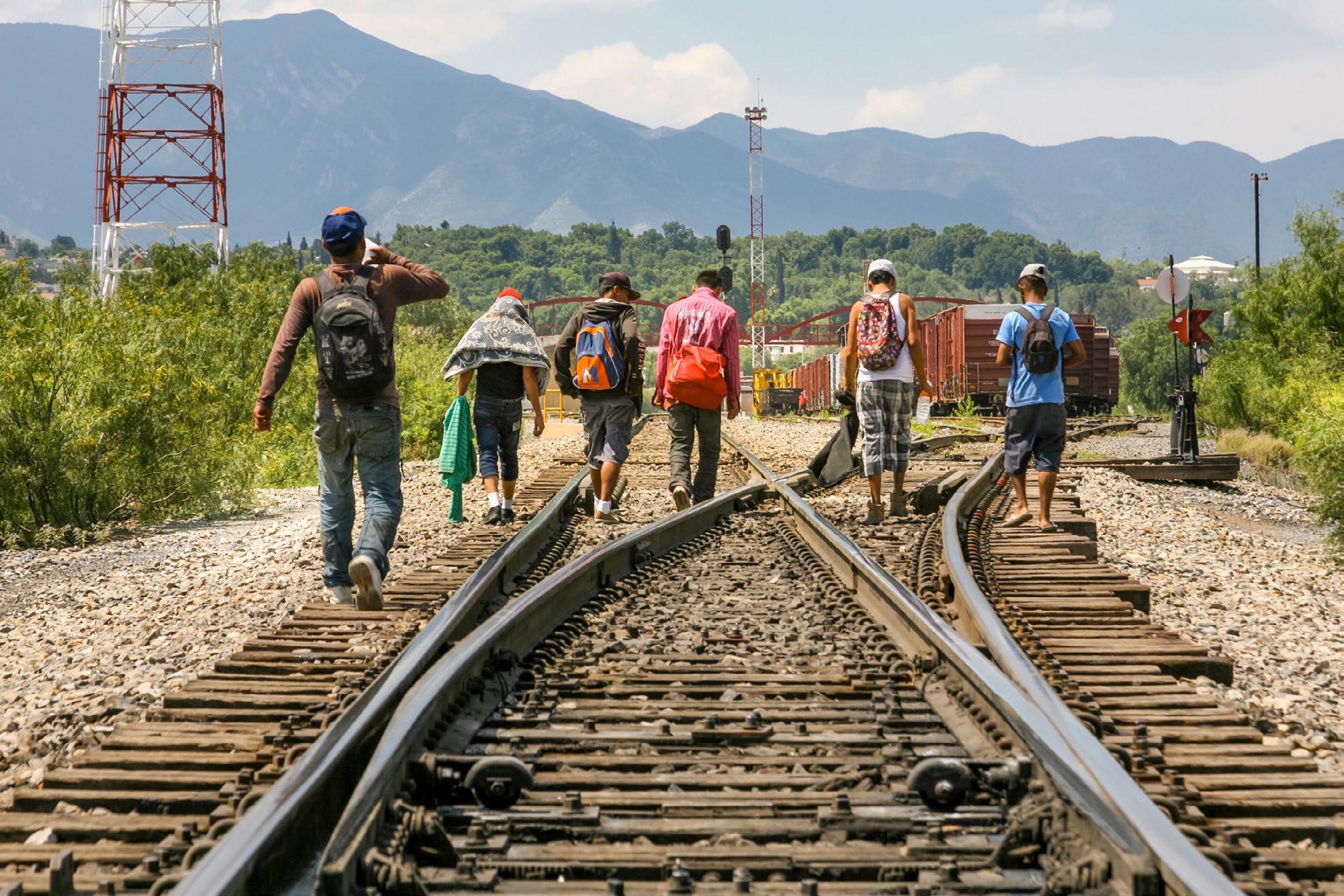
North and Central American Task Force on Migration
A Regional Response to Migration and Displacement in the Americas
The crisis at the U.S. border and in Mexico of an influx of thousands of migrants, displaced persons and unaccompanied minors mostly from Central America and within Mexico itself is a major international humanitarian and refugee crisis that requires immediate action. Not only are lives threatened and the situation becoming increasingly dire with each passing day, but also the possibilities of the Biden Administration to come up with a more humane system and put an end to 16 years of immigration gridlock is becoming more constrained. The situation can only be resolved by a comprehensive, regional response that not only addresses the safety and well-being of these migrants and forcibly displaced persons, but also addresses the deep-rooted causes of this crisis. As the World Refugee & Migration Council, the Center for U.S.-Mexican Studies, the Migration Policy Institute, Inter-American Dialogue and other groups are now urging, the imperative of addressing migration and forced displacement needs a collaborative strategy and cooperative action, which transcends partisan politics, rather than appeals to close borders which push the problem onto neighboring countries.
Task Force Co-Chairs
Secretary Madeleine Albright, former U.S. Secretary of State Hon. Lloyd Axworthy, Chair, World Refugee & Migration Council, former Canadian Minister of Foreign Affairs Lic. Mayu Brizuela de Avila, former Minister of Foreign Affairs, El Salvador Dr. Julieta Castellanos, Former Rector, National Autonomous University of Honduras Fr. Leonir Chiarello, Superior General of the Congregation of the Missionaries of Saint Charles, Scalabrinians President Laura Chinchilla, former President of Costa Rica Dr. Silvia Giorguli Saucedo, President, El Colegio de México Cardinal Álvaro Ramazzini, Bishop of Huehuetenango, Guatemala
The Task Force will soon publish a report of its conclusions and recommendations focused on the following areas: § Humanitarian protection in the region, particularly for women and children who are at greatest risk, including addressing needs of internally displaced persons and building asylum/reception capacity in Central America and Mexico. § Cooperation and co-responsibility for managing migration, focusing on enhancing regional approaches to migration in the region, building on existing mechanisms, and assessing possibilities for developing a Comprehensive Plan of Action. § Institutional frameworks, domestic political considerations and ‘push factors’ in countries of origin and transit, including rule of law/governance, and corruption/accountability. § Investment in long-term development, addressing violence/gangs, poverty/inequality; environmental and climate change. Transition from humanitarian assistance to sustainable development and engagement of local communities in Central America. § Strengthening regular pathways for migration as an alternative to irregular migration, including family reunification, labor migration, private sponsorship and possibilities for refugee/asylum processing in the region. § Broader questions of the narratives around migration and integration of refugees and migrants into receiving countries.
More information, interim reports and the full list of Task Force members: wrmcouncil.org/TaskForce Write info@wrmcouncil.org with inquiries and to receive updates by email.

